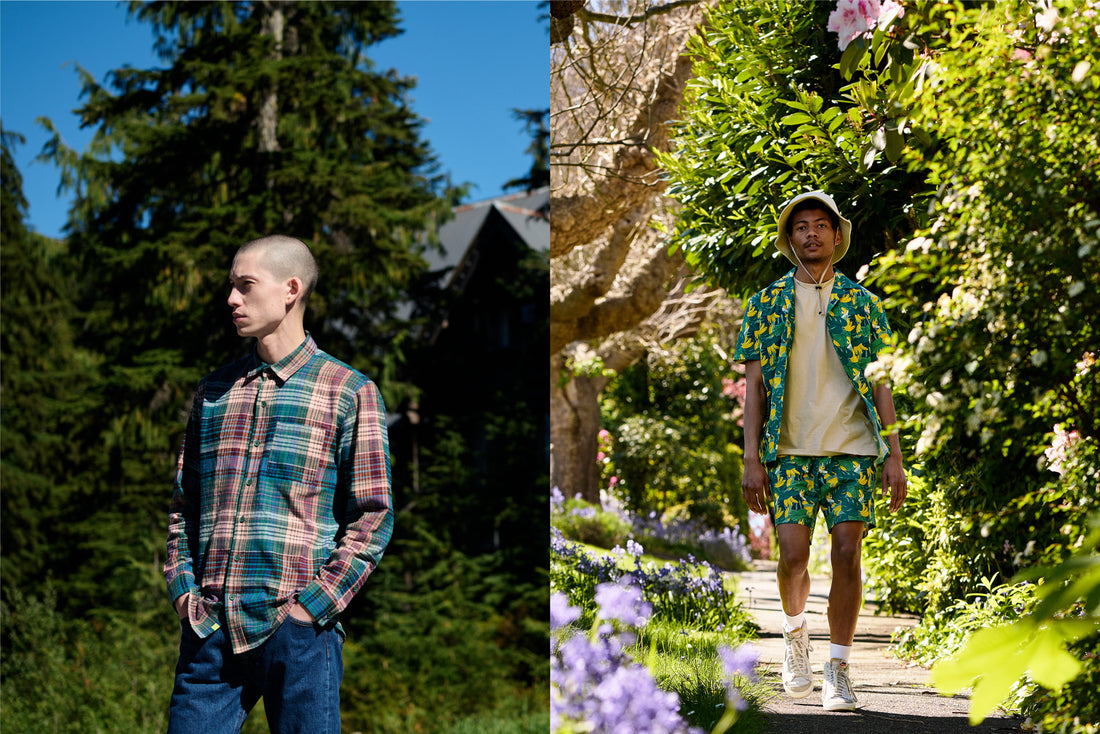
Wearing Colorful Clothes Can Increase Your Wellbeing
Share
In today's fashion landscape, especially during the colder fall and winter months, men's fashion takes a nose dive into the monotonous. Seas of monotone plaid shirts, basic grey or black jackets, grey sweaters and everything else in between desaturate the already, dark, cold and gloomy environment of the concrete urban landscape. It's as if our depressing surroundings have had such an impact on us that we have started to emulate it through our clothes. Sure, there are outliers in our society who embrace prints, patterns, and inspired illustrative designs in their attire, but let’s be honest, one search on Instagram for #mensfallfashion will tell you that they are few and far in between. Not only are these style's boring, studies show humans experience increased stress, boredom and reduced wellbeing when surrounded by monotonous and bland things. Studies also show that what we inherently perceive as beautiful can have the opposite effect and increase our health instead.
So What is Beauty and Are There Things That Are Beautiful to Everyone?
Beauty is not a tangible property, it merely resides in our brain as a pleasant feeling, however the human species seems to be in an unexplainable inherent agreement about the beauty of some fundamental things. The Golden Ratio (1/1.618), symmetry, fractals, patterns; these things can be found in the architecture, art, and fashion across all cultures and occur naturally in nature as well. In fact, studies on early humans have found that their tools were trimmed to a symmetrical shape, not because they were more effective but because our ancestors preferred symmetry over asymmetry. Identifying these signs in nature helped our early ancestors better navigate their surroundings and survive.
Recognizing Beauty is Part of Our Survival Mechanism
Recognizing things that help us survive like a safe location, nutritious food, a healthy partner with symmetrical features activate the reward centers in our brain and give us pleasant feelings. We are pattern seeking creatures and our sense of beauty evolved from our ability to recognize these patterns. For example a brightly colored and more symmetrical fruit had a higher probability of being healthy compared to an asymmetrical, disfigured fruit with less saturated colors. A landscape of trees forming a pattern on the horizon was good, while the same landscape with a section of broken trees could be a sign of danger. However, after around 2.6 million years of human existence our sense of beauty evolved into something exponentially more complex.
How Beauty Affects Our Wellbeing
Since those early days of human existence, we have drastically altered our environment and created modern landscapes that favor, cost savings, functionality and efficiency over beauty. Studies show that these changes to our environment have had negative effects on our wellbeing. Experiments with skin sensors revealed that looking at dull, plain facades made us feel bored and uncomfortable. Other experiments using eye tracking software revealed that people didn't like looking at monotone, bland things and instead liked focusing on ornamental, intricate patterns and brightly colored objects. These feelings of uncomfort and boredom have been linked to stress and raised heart rates, however, the opposite seems to be true as well.
Studies done over the last ten years have found that if we are surrounded with aesthetically pleasing things we can measurably improve our cognitive functions, reduce stress, increase wellbeing, behavior and mood. Beauty has such a strong impact on our wellbeing that making useful things beautiful can actually make them better. For example, an experiment was done on a hospital that contained two wards. One was an old ugly ward and the other, a newly renovated one that featured things with patterns, symmetry, and colors like visual art, plants, etc. The patients who spent their time in the new ward were released two days earlier on average and needed less pain medication.
How You Can Increase Your Wellbeing & The Wellbeing of Those Around You
Based on these various studies we can infer that living in environments that contain inherently beautiful things, like the clothes we wear, can increase our wellbeing and reduce stress. Men should strive to break free from the comforts of monotonous basics and experiment with more interesting apparel that utilize patterns, colors, symmetry and prints. Printed button ups, colorful knit sweaters, or patterned jackets are a perfect way to experiment with such things and are easy to incorporate into your existing wardrobe. So the next time you're about to go out into your grey city landscape and put on another basic, dull outfit, remember that science shows being colorful can make us and those around us happier.
Credits
For more information on about why beautiful things make us happy check out this great video by Kurzgesagt.